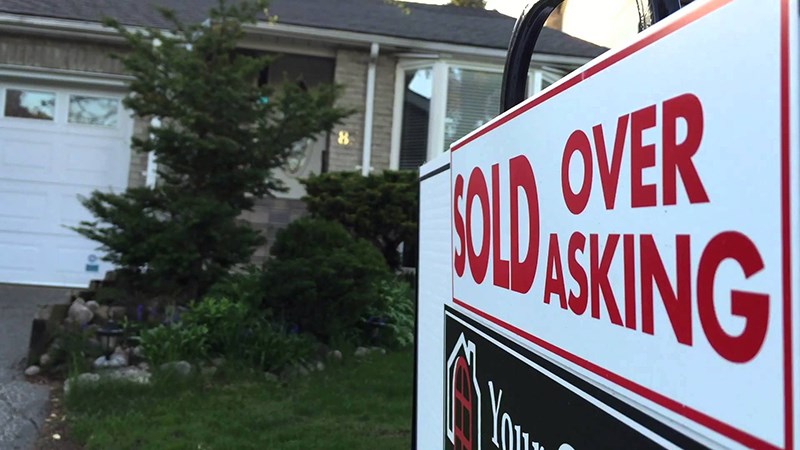The provincial government's budget announcement highlights plans to slow the housing market
The B.C. government is anticipating double-digit declines in B.C. housing starts and property transfer tax revenue, and increased revenue from its foreign buyers’ tax, over the course of the next year.
A projected slowdown across the B.C. housing market is expected to leave the province with $483 million less revenue from its property transfer tax in 2017/18 – a 23.9% drop year-over-year as market activity for the year ahead is forecast to return to 2015/16 levels.
Over the following two years, the province projects revenue to fall an average of 3.9% annually to reach $1.4 billion in 2019/20, compared with the more than $2 billion generated last year.
The anticipated market slowdown tracks, in part, housing starts, which are expected to drop by 28.4% this year, compared to the 33% increase seen in 2016.
“We don’t expect the real estate market to be percolating along at the level it was last year,” said Minister of Finance Michael de Jong.
Certain taxes on real estate however are expected to generate greater revenue over the years to come.
Once the current fiscal year ends, B.C. expects it will have earned $100 million in taxes on residential purchases made by foreign buyers in the Metro Vancouver region.
Total revenue from the province’s foreign buyers’ tax – implemented in August of last year – is expected to hit $150 million annually over the next three years: tax generated by $1 billion in residential properties purchased by foreign buyers annually through to 2019/20.
According to Minister de Jong, where foreign activity in Metro Vancouver’s residential real estate once constituted 15-17% of market activity, levels have dropped to between 3-5%, a sign the tax has had the “desired impact.”
B.C. also expects to see property taxes grow by an average of 4.6% per year over the next three years, bringing in an additional $593 million in taxes by 2019/20 over the current fiscal year’s estimates.
To address housing affordability, the B.C. government announced in its budget for 2017 that it will be increasing the threshold of the province’s first-time homebuyer’s program to $500,000 from $475,000, a move it estimates will save first-time buyers up to $8,000 in property transfer taxes.
The Urban Development Institute applauded the transfer tax relief. UDI President and CEO Anne McMullian said the move "will enable more locals and families to get onto the first rung of the property ladder."
Budget 2017 also provides an additional $159 million to maintain assistance levels for low-income families and seniors requiring support with their private rental payments.
For the year ahead, the province will continue to administer its $700-million BC HOME Partnership program, which offers up to $37,500 in five-year, interest-free loans to first-time homebuyers seeking financial assistance. Government will also continue administrating its previously announced $920 million in funding dedicated creating additional affordable housing supply.
Continuing to explore partnership opportunities with municipal governments to better address housing capacity, and to enhance the processing, approval and permitting of housing development applications, are also a priority for the coming year.
Highlights of Tuesday’s B.C. provincial budget, tabled in the legislature by Finance Minister Mike de Jong:
- A fifth consecutive balanced budget, with surpluses predicted $295 million on $50.8 billion in revenue in 2017-18, $244 million on $51.2 billion in revenue in 2018-19, and $223 million on revenue of $52.0 billion in 2019-20.
- Cutting by half January 1 the Medical Services Plan (MSP) premiums for those with net family incomes of less than $120,000, with a pledge to eliminate premiums if the province exceeds its economic forecasts.
- Reducing to 2%, from the existing 2.5%, the small business corporate income tax rate starting April 1.
- Cutting by half the provincial sales tax for businesses on electricity starting Oct. 1, with an elimination of the seven-per-cent tax in April 2019.
- $87 million in additional funds for technology sector support, with details to be revealed at next month’s BC Tech summit.
- If forecasts hold, there would be no provincial operating debt as early as 2020, the first time in 45 years.



